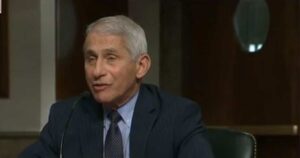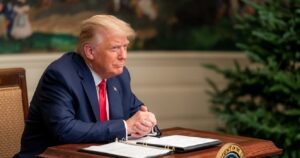House Ethics Panel Wraps Up Campaign Finance Probes
The House Ethics Committee has brought an end to its investigations of potential campaign finance violations involving four representatives, concluding that no violations were intentional.
The bipartisan committee voted unanimously to close the cases concerning Democratic Rep. Sanford Bishop and Republican Reps. Ronny Jackson, Wesley Hunt, and Alex Mooney, determined that none of the transgressions were deliberate.
The committee's inquiry examined whether the members had adhered to the required standards regarding the personal use of campaign funds and related financial reporting or recordkeeping mandates. While they did discover evidence indicating incomplete compliance, they decided against disciplinary action. Instead, the committee furnished the lawmakers with updated guidance to prevent any future lapses.
Ethics Committee Investigations Completed
The decision to close the investigations reflects a significant step amidst ongoing scrutiny over campaign finance practices among U.S. lawmakers. The involved representatives received recommendations rather than penalties, underscoring the committee's conclusion that the errors were not committed intentionally.
This investigation closure follows a separate case involving former Florida GOP Rep. Matt Gaetz. Allegations against Gaetz concerned different issues, and, similarly, the Department of Justice did not bring criminal charges after their inquiry.
Though there were oversights in campaign finance adherence, the committee focused on educating the lawmakers. This approach suggests a move towards corrective guidance over punitive measures, reinforcing the importance of compliance without pursuing formal reprimands.
Responses from Involved Lawmakers
Rep. Ronny Jackson expressed relief after the conclusion of the inquiry, emphasizing his eagerness to resume focused legislative efforts. In his statement to Politico, he highlighted the partisan nature of the probe, describing the ordeal as politically motivated.
Jackson, representing Texas, expressed his motivation to progress with policy work, particularly in collaboration with former President Trump. This sentiment underscores the broader political context where such inquiries can influence legislative dynamics.
The other lawmakers included in the investigation did not provide immediate public comments following the committee's announcement. However, the decision not to impose penalties implies a shared understanding of the need for improved compliance going forward.
Committee's Role in Oversight
The House Ethics Committee has a pivotal role in ensuring lawmakers adhere to ethical and legal standards. Its decision to offer recommendations instead of punitive actions reflects a nuanced approach, tailored to emphasize guidance and adherence to ethical norms.
By providing updated guidance, the committee aims to bolster compliance with campaign finance regulations. This reinforcement of ethical norms supports the integrity of electoral practices and upholds public trust in the legislative process.
Campaign finance violations, even if unintentional, pose significant risks to transparency and accountability. The committee's investigations serve to highlight these issues and foster an environment where lawmakers remain vigilant and informed about their financial responsibilities.
Broader Implications for Campaign Finance
While the committee's decision to close these cases without disciplinary action might appear lenient to some, it underscores a broader intent to ensure comprehensive compliance through education. As lawmakers navigate complex campaign finance laws, continuous guidance is crucial for maintaining ethical standards.
The inquiry’s resolution sends a message about the importance of diligence in campaign finance. It serves as a reminder of the ongoing need for clarity and attentiveness in managing campaign funds. By addressing these oversights with updated guidance, the committee implicitly aims to deter similar occurrences in the future.
Lawmakers involved in these cases are expected to integrate the committee's recommendations swiftly. By doing so, they can demonstrate their commitment to ethical governance and enhance public perception of their integrity.
Next Steps for Lawmakers
Future compliance will be monitored closely, with these resolutions serving as a framework for preventing unintentional missteps. As public servants, adherence to ethical guidelines remains paramount, reinforcing the foundational principles of public service.
The conclusion of these investigations marks a step towards improved clarity and adherence to campaign finance practices. The commitment to guidance over sanctions highlights the evolving nature of ethical oversight, focusing on sustainable compliance and educational reinforcement.




